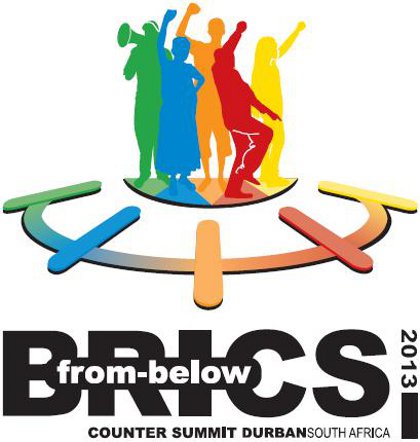
Hardly a day goes by without the annoucement of yet another initiative to strengthen South-South ties in the context of the upcoming 5th BRICS Summit in Durban. The first BRICS Summit on African soil later this month will see the launch of the BRICS Business Council – a platform to strengthen ties among the business communities of Brazil, Russia, India, China and South Africa. The council is supposed to set up sector working groups and submit reports to the BRICS leaders at their annual summits. One of their recommendations is surely to be the reduction of trade barriers, which continue to provide potent obstacles to South-South trade. In the same way, a BRICS think tank network is likely to be set up to facilitate policy research among institutes in the Global South. In a spirit similar to that of the World Social Forum, human rights NGOs from the Global South are organizing a “counter summit” in Durban.
Research on proliferating South-South ties in the context of the BRICS platform is fascinating. Since 2010, Supreme Court judges from BRICS countries are meeting regularly. Representatives from tens of minisitries – including agriculture, defense, finance, education, health and culture are increasing their cooperation. Virtually no systematic analysis has been conducted on the impact of these developments.
The South African government seems to be taking the BRICS Summit to an entirely different level. During the summit, more than 5000 participants and journalists are expected to arrive in the city. The city government is spending considerable amounts on street-pole banners, bridge banners, country flags and and other branding “to increase BRICS brand awareness” – something entirely absent during previous summits. City ambassadors will be stationed at the airport and hotels and the International Convention Centre. Employees of the Ministry of Education are in the streets of Durban to spread news of the meeting of emerging nations among ordinary citizens – with microphones, information pamphlets, and BRICS branded caps and T-shirts. “We don’t want the message to remain with the elite, but want to communicate it to people on the ground, crafted in a way they will understand” one of them says. On top of it all, several public concerts will take place along the beach to entertain the international visitors.
It is perhaps not surprising that the South African govenrment is so keen on promoting its BRICS identity among the population – South Africa’s accession to the exclusive club is, after all, one of the most impressive foreign policy stunts of the past years, and policy makers in Pretoria are rightly seeking to capitalize on it.
For policy analysts, the BRICS-frenzy raises challenging questions – too little has been written about the platform, and very few people are still aware of the multitude of events that are occurring in the weeks before and after the summit. Perhaps that is just a natural development – after all, that may have been the whole idea of boosting South-South ties in the first place. Despite all the buzz, ties between societies in the Global South remain weak. For example, most international relations scholars from Brazil still travel to conferences and meetings in Europe and the United States far more often than to Africa and Asia. South African or Indian students are far more likely to spend a semester at a French or British university than at a Chinese or Brazilian one.
Next year, Brazil is likely to host the 6th BRICS Summit. If Brazilian policy makers want to increase awareness of Brazil’s BRICS identity among the population, they should consider organizing the event in bustling Rio de Janeiro or São Paulo, rather than sleepy Brasília.
Read also:
At BRICS meeting in Moscow, focus lies on engaging Africa








